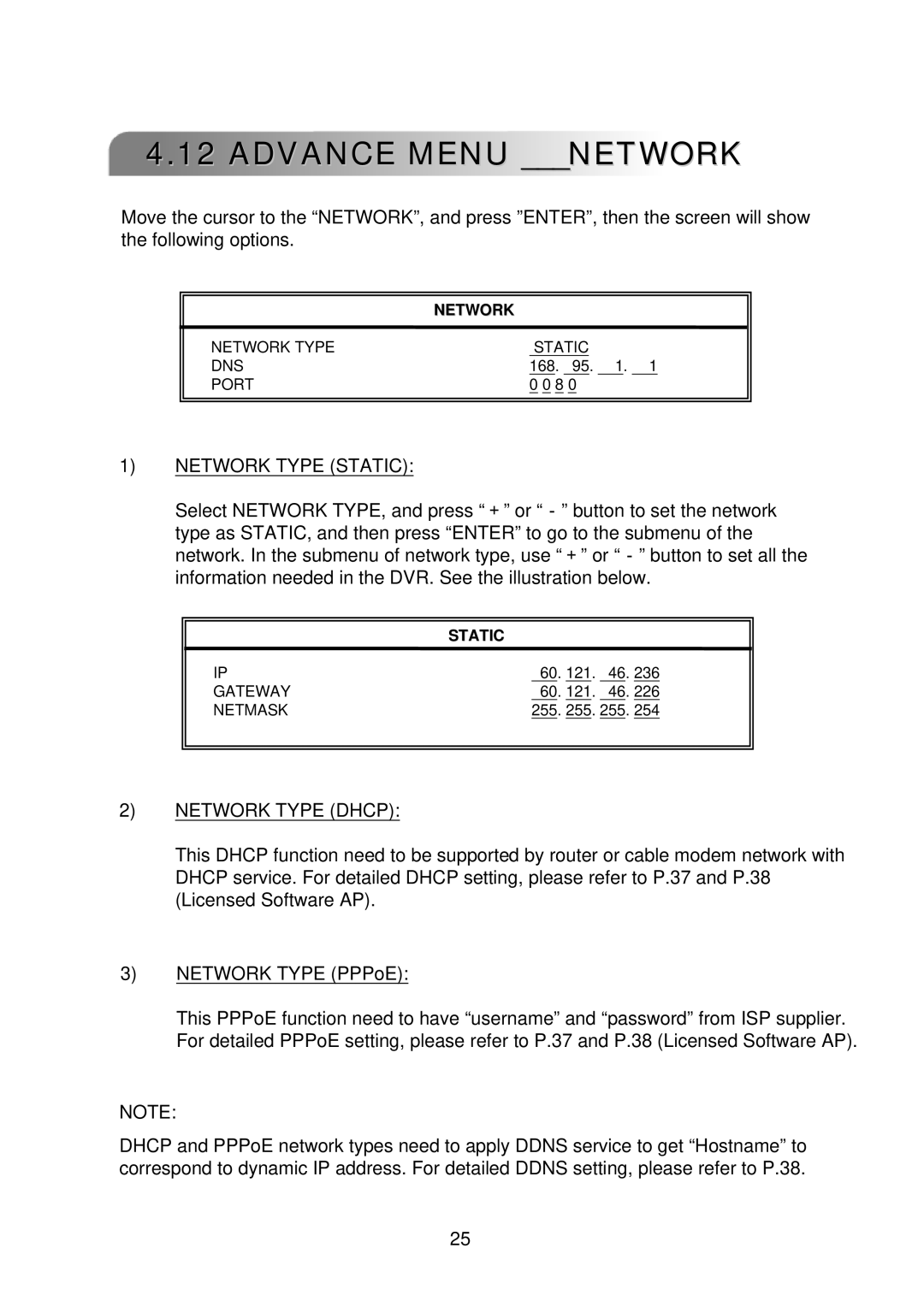
4.12 ADVANCE MENU ___NETWORK
Move the cursor to the “NETWORK”, and press ”ENTER”, then the screen will show the following options.
|
|
|
|
|
|
|
|
| NETWORK | ||||||
NETWORK TYPE | STATIC | ||||||
DNS | 168. 95. 1. 1 |
| |||||
PORT | 0 0 8 | 0 |
|
|
|
|
|
|
|
|
|
|
|
|
|
|
|
|
|
|
|
|
|
1)NETWORK TYPE (STATIC):
Select NETWORK TYPE, and press “+” or “-” button to set the network type as STATIC, and then press “ENTER” to go to the submenu of the network. In the submenu of network type, use “+” or “-” button to set all the information needed in the DVR. See the illustration below.
|
|
|
|
|
|
|
|
|
| STATIC |
|
|
|
| |||
IP | 60. | 121. | 46. | 236 | ||||
GATEWAY |
| 60. |
|
| 121. | 46. |
| 226 |
NETMASK |
| 255 | . | 255. | 255 | . 254 | ||
|
|
|
|
|
|
|
|
|
|
|
|
|
|
|
|
|
|
2)NETWORK TYPE (DHCP):
This DHCP function need to be supported by router or cable modem network with DHCP service. For detailed DHCP setting, please refer to P.37 and P.38 (Licensed Software AP).
3)NETWORK TYPE (PPPoE):
This PPPoE function need to have “username” and “password” from ISP supplier. For detailed PPPoE setting, please refer to P.37 and P.38 (Licensed Software AP).
NOTE:
DHCP and PPPoE network types need to apply DDNS service to get “Hostname” to correspond to dynamic IP address. For detailed DDNS setting, please refer to P.38.
25
